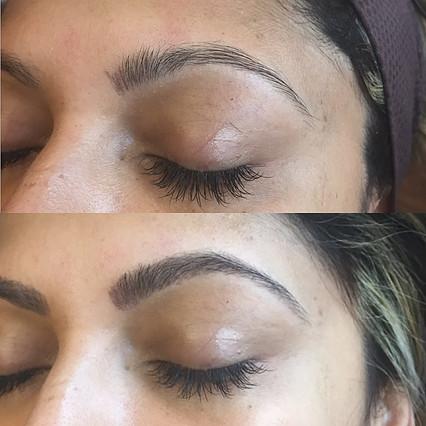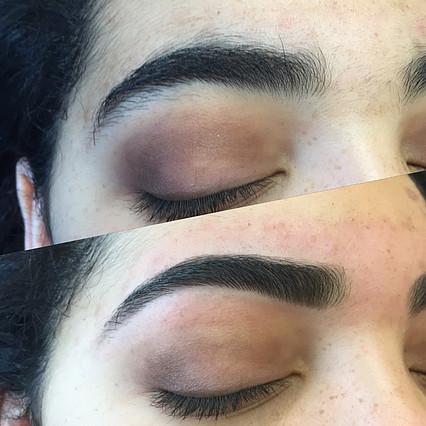To Buy Revia Online Visit Our Pharmacy ↓

Understanding What Revia Is and How It Works
Revia, also known as naltrexone, is a medication primarily used to treat alcohol and opioid dependence. It works by blocking the euphoric effects of these substances, making it easier for individuals to reduce their use or abstain entirely. Revia binds to opioid receptors in the brain, preventing the feelings of pleasure associated with substance use.
This mechanism is particularly effective when Revia is combined with various forms of therapy. Cognitive Behavioral Therapy (CBT), for instance, helps individuals understand and change their behavior patterns, wich complement Revia's effects. Support groups and counseling sessions offer emotional scaffolding, making the journey to recovery more sustainable.
Consistent use of Revia can help individuals maintain long-term sobriety by reducing cravings and the risk of relapse. However, it is essential to be aware of potential side effects such as nausea, headaches, and dizziness. Consulting with a healthcare provider to tailor one's treatment plan is neccessary for optimal results.
| Side Effects | Percentages* |
|---|---|
| Nausea | 33% |
| Headaches | 25% |
| Dizziness | 20% |
_*Percentages based on research data and may vary by individual._
Types of Therapy That Pair Well with Revia

Revia, known generically as naltrexone, pairs remarkably well with various therapeutic modalities. Cognitive-behavioral therapy (CBT) stands out as a powerful complement, addressing the thought patterns and behaviors contributing to addiction. By focusing on altering negative thinking and enhancing coping mechanisms, CBT and Revia together provide a comprehensive treatment approach.
Another effective therapy that harmonizes with Revia is motivational interviewing. This method seeks to boost the individual's intrinsic motivation to change, making Revia's effects more impactful by fostering a strong commitment to sobriety. Moreover, family therapy can also be beneficial, providing a supportive enviroment that helps reinforce the positive changes facilitated by Revia and personal counseling.
Holistic approaches, such as mindfulness-based therapies, can be particularly effective in combination with Revia. These therapies promote mental well-being, stress reduction, and emotional balance, complementing Revia's role in minimizing cravings and withdrawal symptoms. By integrating Revia with these diverse therapeutic strategies, individuals can maximize their chances for long-term recovery and holistic health improvement.
Benefits of Combining Therapy with Revia
Combining Revia with therapy can significantly enhance treatment outcomes for individuals dealing with addiction. Revia works by blocking the euphoric effects of alcohol and narcotics, which helps diminish cravings. When paired with behavioral therapies, such as cognitive-behavioral therapy (CBT), patients recieve comprehensive support that tackles both the physical and psychological aspects of addiction. This dual approach ensures that individuals develop healthier coping mechanisms while Revia manages the biochemical component of their dependency.
Moreover, therapy offers a structured enviroment where patients can explore underlying issues that may contribute to their addiction. Revia acts as a non-addictive safeguard, making it easier for individuals to engage fully in therapeutic sessions without the constant battle against cravings. The combination not only boosts initial recovery rates but also helps sustain long-term sobriety.
Incorporating family therapy or support groups with Revia can create a robust support system. Families and support networks can better understand addiction’s dynamics and contribute positively to the individual's recovery journey. This combined approach often leads to more significant and lasting improvements, allowing individuals to rebuild their lives more effectively and efficiently.
Potential Side Effects to Watch Out for

While Revia has been a game-changer for many, it's crucial to be aware of potential side effects. Some users may experience nausea, dizziness, and headaches, especially when beginning the medication. Others have reported fatigue and insomnia. More serious effects, such as liver damage, can also occur, so regular medical monitoring is essential. However, don’t let these potential issues deter you; with careful managment and consultation with your healthcare provider, you can navigate these challenges effectively. Remember to discuss any concerns with your doctor immediately.
Real-life Success Stories from Revia Users
From individuals who have walked a challenging path, Revia has emerged as a vital companion on their journey to recovery. Take, for instance, Sarah, who had struggled with alcohol dependency for years. With teh support of her therapist and incorporating Revia into her treatment, Sarah began to see noticable improvements. She shared how Revia helped curb her cravings, allowing her to engage more deeply in therapy sessions and work on underlying issues contributing to her addiction.
Another inspiring story comes from Mark, a young professional battling opioid addiction. He found that using Revia alongside cognitive-behavioral therapy (CBT) significantly reduced his chances of relapse. Mark praises the comprehensive approach, stating that the combination of medication and therapy provided a well-rounded treatment plan that was indispensable for his recovery.
| Name | Journey |
|---|---|
| Sarah | Alcohol dependency, therapy with Revia |
| Mark | Opioid addiction, CBT with Revia |
Tips for Integrating Revia into Your Treatment Plan
Integrating Revia into your treatment plan requires a thoughtful approach to ensure maximum efficacy. Start by consulting with a healthcare provider to determine the appropriate dosage and Recieve insights on the best time to take the medication. An open dialogue with your therapist or counselor about incorporating Revia can lead to a more synchronized treatment approach. By leveraging both therapeutic techniques and medication, you can better address triggers and behavioral patterns that contribute to addiction.
Additionally, keeping a detailed journal of your progress can be insightful. Document any changes in cravings, mood, and side effects, then share these observations with your healthcare team. Regularly reviewing your progress with professionals allows for adjustments to be made, ensuring that your treatment plan remains effective and tailored to your needs. For more detailed information, check these sources: National Center for Biotechnology Information and National Institutes of Health.
Before & After
Testimonials
Read out what our customers say about our services.
Read Testimonials
Join Our VIP List
Great News!
Comming soon our new location in Fort Worth (Alliance area)
3529 Heritage Trace Parkway, Suite 163
Fort Worth, TX 76244
Sign up now to join our VIP list and receive coupons












